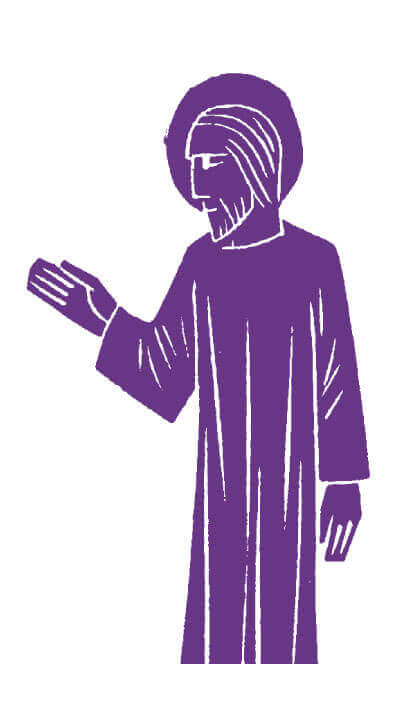
Sunday Readings: Wisdom 9.13-18; Philomen 9-10, 12-17; Luke 14.25-33
Large crowds were traveling with Jesus. He turned to them. “Whoever comes to me and does not hate father and mother, spouse and children, brothers and sisters, yes, even life itself, cannot be my follower. Whoever does not carry the cross and follow me cannot be my disciple. For which of you, intending to build a tower, does not first sit down and estimate the cost to see if you have enough money to complete the project? Otherwise, when you lay the foundation and are not able to complete the work, all who see it will ridicule the builders (Luke 14.25-29).
Crucifixion was an excruciatingly painful and shameful form of execution, reserved for Rome’s vilest criminals and insurrectionists, cruelly calculated to deter imitators. Jesus’ statement, “Whoever does not carry their own cross and come after me cannot be my disciple,” would have shocked and rocked his listeners. But that was his intent.
Jesus is teaching crowds. He uses strong and shocking language to shake people out of the false security of popular messianic expectations. The conditions Jesus lays down for discipleship are unambiguous. We must love him more than our loved ones or ourselves. This is a way of stating the two great commandments—to love God with all our hearts, all our beings, all our strength, and all our minds, and love our neighbors as ourselves.
Discipleship is more than a private matter. Faith in him is more than a family tradition or personal belief. Following Jesus takes us into the world, away from home, even away from ourselves, into relationships with people not like us. Disciples who try to live as Jesus did can expect to endure shaming, harassment, and even violence. Jesus’ words should disturb and challenge us. Being gospel words, they also carry the power to help us live as disciples.
In what ways do you carry Jesus’ cross?